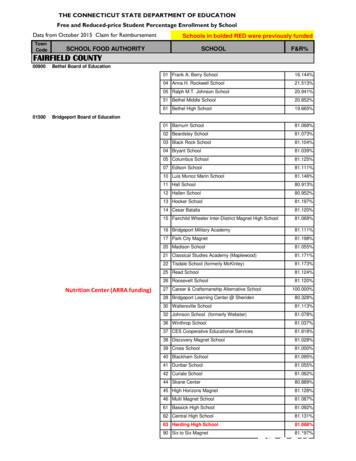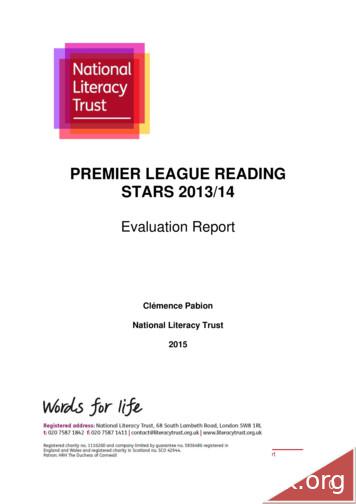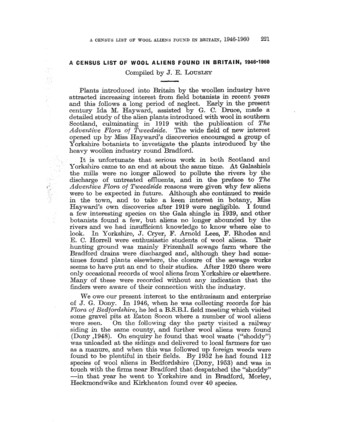CEFN SAESON SCHOOL
CEFN SAESON SCHOOLCURRICULUM POLICY
IntroductionThis curriculum policy supports the guiding principles of Cefn Saeson Schoolas being founded on the comprehensive ideal – a belief that all children are ofequal value and that it is our task to help develop the abilities and talents thatall undoubtedly have. It actively promotes the principles of ‘individual humanworth, achievement, equal value, co-operation, openness and respectingdifferences’. This policy expresses a key way in which the school can fulfill itsrole as ‘an inclusive school where every child matters’.The aims of the school can be summarised as follows: To provide a high quality educational experience that recognises theunique personality of each pupil.To enable each individual to reach his/her full potential within a culture ofhigh expectations.To ensure that every pupil receives a broad, balanced, and relevantcurriculum, which meets the requirements of the National Curriculum andthe Learning Country.To establish a caring, productive and disciplined learning environment thatis both supportive to children’s needs and pleasant to work in.To enable pupils to function effectively as citizens in a rapidly changingsociety, adapting to its demands by acquiring the social and emotionalintelligence required to succeed.To encourage pupils to develop lively, enquiring minds and to promote thegrowth of independence, self-confidence and self-motivationTo promote understanding, harmony, equality of status and opportunitybetween every member of the school community.To use education and learning for the enrichment of the lives of the wholeschool community and to promote values and standards of behaviour andachievement that will enable pupils to develop the social skills essential totake up their place in society.To encourage a supportive community involvement that includes parentsand local industryTo encourage pupils to participate in a variety of enhanced learningexperiencesStatement of PrinciplesThe following principles underpin the provision of education in the school: All learners are of equal value and should have equal access to a widerange of high quality learning experiences. The development of positive self-esteem, self-confidence and self-worth iscentral to the school’s academic targets and each pupil’s individualdevelopment. The education of pupils is a partnership between the pupils, their parents,the school and the local community. All have a significant role to play inthe development of a culture of success within the school community. The educational experience available to all pupils should be broad,balanced, coherent, differentiated and relevant. There should be a strong framework of moral values that promoteseffective citizenship and academic success.
Learning is a life-long process. We should develop effective progressionroutes as well as promoting the value of life-long learning.Children learn in a variety of ways and our teaching reflects the differentneeds of the learners. We want pupils to know where they are in theirlearning, where they are going and how best to get there.In making the curriculum accessible to pupils we should also recognize theneed for pace, differentiation and challenge to ensure that all our pupilsare stretched but that they also gain a sense of success as a result of theirefforts.A Guide to the CurriculumThe curriculum is based on the above principles. It consists of all thoseactivities designed or encouraged within the organisational framework topromote the intellectual, personal, social and physical development of allpupils. This includes not only the formal programme of lessons, but also the"informal" programme of enhanced learning opportunities as well as thosefeatures which produce the school's ethos.The curriculum is designed to ensure that all pupils are given appropriateopportunities to fulfil their potential. The greatest compliment and one weshould frequently use is: "they did their best"; the school motto celebrates thiscompliment. Positive attitudes are cultivated and encouraged so that pupilswith diverse abilities and aptitudes can take pride in their achievements.No two children are alike. The organisation of the school is intended toenable pupils, supported by their teachers, to make informed judgementsabout their lives.Pupils are provided with a curriculum that seeks to develop themacademically, practically, socially and culturally. The content of the curriculumis determined primarily by the requirements of the National Curriculum andReligious Education. In Years 10 and 11 pupils have the opportunity to studyother subjects in addition to the National Curriculum. We make our curriculumappropriate to the needs of the pupils using a variety of teaching styles thatencourage a positive attitude to learning, the understanding of concepts andvalues, and the acquisition of knowledge and skills.Through our curriculum, the school sets out to develop the following skills: Communicational Numerical Observational and visual Imaginative Organisational and study Physical and practical Social Problem-solving and thinking CreativeThese skills are considered when we prepare the curriculum.
Expectations of members of staffPutting principles into practice. Staff are expected actively to promote andseek to secure the curriculum aims (above) and, in particular to: have high expectations of students; employ a variety of appropriate teaching and learning methods; ensure that, wherever possible, students are found means of access to thecurriculum and given opportunities to succeed; deliver programmes of study which build upon students’ previousexperiences, providing progression and continuity, and which conform tothe requirements of the national curriculum; provide work which meets their students’ needs and aspirations, whichoffers depth and challenge, and which motivates and inspires them; involve the learner in the process of learning, by discussing work, givingregular feedback through assessment and marking, negotiating targetsand encouraging pupils to evaluate their own achievements; develop students’ skills to become independent learners; encourage, reward and value achievement and effort, both formally andinformally, through praise in the learning environment; work in partnership with other staff, parents/carers and the widercommunity to achieve shared goals; keep parents/carers regularly and fully informed about the progress andachievements of their sons and daughters.Curriculum structureThe school operates a fortnightly timetable (Week 1 will be timetableddifferently to Week 2) with 60 lessons in total in the two week period. Thereare 6 periods per day (4 in the morning, 2 in the afternoon), each of whichlasts for 50 minutes. Registration period takes place every morning for 20minutes during which form tutorials and year group assemblies take place.This means that teaching time is 25 hours a week, in line with governmentrecommendations for key stage 4, and in excess of those for key stage 3.Key Stage 3: Years 7, 8 and 9Pupils follow a common curriculum comprising:SubjectsEnglishMathematicsScienceNumber of lessonsper fortnight887ArtDrama*FrenchGeographyGuidance (PSE)HistoryICTMusicPE31442423488886 ( 2 ICT in Sci 6)331144442244223344
RETechnologyWelsh244344344THE KEY STAGE 4 CURRICULUM – YEARS 10 AND 11All pupils will study the core subjects of English, Mathematics, Science,Welsh, Religious Studies, Physical Education and PSE. Most children willstudy English Literature, a separate GCSE subject, under the ‘umbrella’ ofEnglish. Pupils will be able to study one, two or three science subjects. Ifpupils wish to study Welsh, Religious Studies or PE as full course GCSEsubjects, they can usually do so by selecting the subject from the optionsmenu. The following table indicates the subjects available for study, thequalifications to be attained and the number of periods allocated per ns166666666666666612126186Subjects (all GCSE single awards, unlessindicated)English and English Literature/Media StudiesMathematicsScience (core)PEWelshGCSEs(or equivalent)211N/AGCSE shortcourseREGCSE shortcoursePSEN/AArt and design1Certificate in Personal Effectiveness/ Key 2Skills level 1Design – Resistant Materials1Design – Food Technology1Design - Textiles1Child Care1BTEC Extended Certificate in Performing Arts 2French1Geography1History1OCR Information Technology Level 22Music1BTEC Extended Certificate in Music2Physical Education1Religious Studies1Core and Additional Science2BTEC Science Double Award2BTEC Science ( Single )1Triple Science: GCSEs in Biology, Chemistry 3and PhysicsSpanish1
66266666666BTEC First Diploma in Sport Recreation and 2Allied OccupationsWelsh1WJEC Level 2 Project ( Short Course )0.5College Courses (in local curriculum)*BTEC First Certificate in ConstructionBTEC First Diploma Health and Social CareBTEC First Certificate in HairdressingBTEC First Certificate in Animal Care *BTEC First Certificate in EngineeringBTEC First Certificate in BusinessBTEC First Certificate in RetailBTEC Introductory Diploma in VocationalStudies22222224 (at level 1)*These subjects are offered at Neath Port Talbot College. These are coursesthat may be on offer but we are unable to guarantee that all of them will beavailable.In addition to the timetabled provision other experiences may be planned intothe calendar to enhance RE, Guidance and ESDGC at various times.Curriculum mattersMixed ability teaching, setting and differentiation for 2010/2011In Year 7 pupils are organized into 6 teaching groups, where a ‘banding’arrangement places them into 2 upper ability classes, 2 middle ability classesand 2 lower ability classes. For 2010/2011 Maths will set pupils within thesebands. Other classes will teach pupils as they are allocated to the teachingsets.In year 8 pupils are more tightly set by ability into 6 teaching groups.Placement of pupils here is determined by pupils’ overall performances duringthe previous academic year. Maths and English set pupils from within an’upper’ and ‘lower’ band ( 8.1 – 8.3, and 8.4 – 8.6) French also are given theopportunity to set within 3 narrower bands.Year 9 pupils are placed into 7 teaching sets, again by overall ability as aresult of scrutiny of performance during the pervious academic year. Maths,English, Science, Geog, Hist, Welsh, French, all have the opportunity to usesome ‘setting’ from within a banding arrangement. ( see the Curriculum Planat the end of this document for details).In each year group those pupils who require the greatest amount of supportwith their Maths and English are placed into smaller groups where theirlearning needs may be more appropriately met.Termly reviews take place to monitor progress and pupils’ groups may bechanged based upon the outcome of the review. Teachers’ programmes ofwork are carefully prepared to suit the particular needs of the various abilitygroups, providing sufficient common ground to enable movement betweengroups. To take account of these differences and the range of ability in anyclass, all staff have a responsibility, when planning work, to meet the needs of
all pupils. This will involve, at different times, adapting tasks, providingdifferent resources, developing extension work, providing a variety of learningstyles and environments, setting individual goals, giving different levels ofsupport, and offering a variety of ways to demonstrate knowledge andunderstanding. In educational jargon, this approach is known asdifferentiation.Pupils are expected to acquire the skills of Developing Communication.Developing Number, Developing ICT and Developing Thinking. Thecurriculum will also provide pupils with the opportunity to develop thewider key skills of Improving Own Performance, Working With Othersand Problem Solving.The curriculum will develop knowledge and understanding of the crosscurricular themes of Personal and Social Education, Careers and the Word ofWork and Cwricwlwm Cymreig.EQUAL OPPORTUNITIESEntry to all programmes of study is based on academic suitability andappropriateness, regardless of sex, race, disability, religion or belief.Disabilities In accordance with the statutory requirements the school aims tomake the curriculum accessible to all pupils as far as is reasonablypracticable. The school has an Accessibility Plan which is available to parentson request.DIFFERENTIATIONA variety of differing teaching and learning methods and materials are used inall courses to suit pupils' different needs.DISAPPLICATIONNearly all pupils will follow the full curriculum but and after full consultationwith parents the school may dis-apply a pupil from an element of thecurriculum.RELIGIOUS EDUCATIONReligious Education is available to all pupils.withdraw their children from religious education.Parents have the right toCOLLECTIVE WORSHIPAll pupils are expected to take part in an act of daily collective worship. Theschool has a programme of collective worship involving whole-school, yearand form assemblies.SEX EDUCATIONThe school provides sex education in the basic curriculum for all pupils, inwhich pupils are encouraged and guided by moral principles and taught torecognise the value of family life.
A full statement of the school's sex education policy is available to parents. Ithas been drawn up in consultation with staff, pupils and parents, and takesinto account the views of representatives from the community. It has regardfor the government's guidance in Sex and Relationship Education Guidance(0116/2000).In accordance with the law the biological aspects of human reproductionremain compulsory for all pupils, but parents may withdraw theirchildren from any other part of the sex education provided withoutgiving reasons.PE AND GAMESAll pupils are expected to take part in the school's Physical Education andGames programme. Pupils can only be excused from PE and Games lessonsfor medical reasons, for which a note from a parent will suffice, or otherreasons agreed with the school.EXTRA-CURRICULAR ACTIVITIESThe school has a wide and varied programme of cultural and sportingactivities that take place outside the formal curriculum. All pupils are expectedto take part in the programme.SPECIAL EDUCATIONAL NEEDSThe school has a special educational needs policy for statemented and nonstatemented pupils. The school will determine the appropriate courses inconsultation with the parents.CONCERNS AND COMPLAINTSParents who have concerns about any aspect of the curriculum shoulddiscuss these in the first instance with the respective Head of Year.If the issue is not resolved parents should make an official complaint in writingto the Head teacher.ASSESSMENT, PROGRESSION and RECORDING ACHIEVEMENTPupils and parents have a right to know what levels of achievement havebeen obtained. This will be gauged by day to day assessment, tests andschool examinations.Please see the School Assessment Policy document for more detailedinformation.MONITORING AND REVIEWThis policy will be monitored by the Headteacher.
The Head will report to the Governing Body's Curriculum Committee on theprogress of the policy and will recommend any changes.
6 BTEC First Certificate in Animal Care * 2 6 BTEC First Certificate in Engineering 2 6 BTEC First Certificate in Business 2 6 BTEC First Certificate in Retail 2 6 BTEC Introductory Diploma in Vocational Studies 4 (at level 1) *These subjects are offered at Neath Port Talbot College. These are courses
The site should continue to support at least 200 adult great crested newts as identified by torch surveys in the spring. Great crested newt breeding and display ponds across the site will be restored to a condition whereby they support sufficient open water and aquatic macrophytes to support the great crested newt population.
Tim Bowen Antiques Winter Exhibition 2013 3.Welsh stick-chair/ Cadair cefn ffyn Gymreig A wonderful chair of classic ‘lobster pot’ form. The arms made from a single piece of timber Ash and elm circa 1800 25 1/ 2” wide x 43 1/ 4” high x 21” deep
Peppa Pig & Minion, Kite Making, Face Painting, Community Stalls, Food, Bouncy Castle, Craft Stalls Reptiles & Petting Animals, Live Entertainers, Classic Cars & Motorbikes, Fire Engine, Beer Tent, Zumba Fun & More. Stall Holder Forms available from Cefn Shops For more information call 01978 823603 07831 542872 or find us on FB TESCO NEWS
Death Place of Death Age Cause of Death Other Information Date of Newspaper Page Col Brown David John (Pte.) 14/09/1916 24 yrs K. I. A. Of Lancashire Fusiliers. Son of John Brown, Pleasant View, Cefn Cribbwr 27/10/1916 8 4 Browning Frederick Charles Bridgend 2 yrs Scalded to death. Son of Charles Browning of South Street, Bridgend. 28/01/1916 4 8
Dwight Elementary School Burr Elementary School King Street Intermediate School Western CT Academy of International Studies Magnet Broadview Middle School Rogers Park Middle School Pathways Academy Westside Middle School Academy Great Plain School Shelter Rock School (2011 & 2014) King Street Primary School Ellsworth Ave School Pembroke Stadley .
mead school district 354 mercer island school dist 400 meridian school district 505 monroe school district 103 morton school district 214 mossyrock school district 206 mt baker school district 507 mt vernon school district 320 mukilteo school district 6 napavine school district 14 newport school district 56-415 nooksack valley sch dist 506
Windwhistle Primary School, Sir John Cass's Foundation and Redcoat School, Castor CE Primary School, Cantonian High School, Coppetts Wood Primary School, Harper Green School, Olive Hill Primary School, Heritage High School,, Thomas Clarkson Academy, St Gabriel’s RC High School, St. George's RC High School,
A CENSUS LIST OF WOOL ALIENS FOUND IN BRITAIN, 1946-1960 221 A CENSUS LIST OF WOOL ALIENS FOUND IN BRITAIN, 1946-1960 Compiled by J. E. LOUSLEY Plants introduced into Britain by the woollen industry have attracted increasing interest from field botanists in recent years and this follows a long period of neglect. Early in the present century Ida M. Hayward, assisted by G. C. Druce, made a .






















